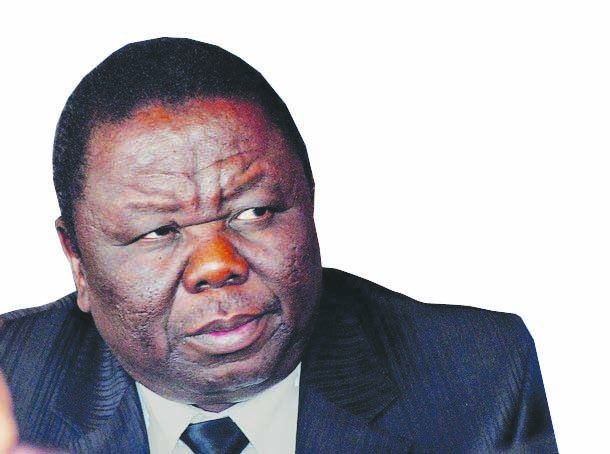


 Movement for Democratic Change (MDC-T) leader, Morgan Tsvangirai, has been walking a tightrope since his electoral defeat on July 31 as pressure for him to step down from the party’s helm mounts.
Movement for Democratic Change (MDC-T) leader, Morgan Tsvangirai, has been walking a tightrope since his electoral defeat on July 31 as pressure for him to step down from the party’s helm mounts.
Although the party’s exiled treasurer general, Roy Bennett, is seemingly the only one with the guts to openly talk of the need for leadership renewal, indications suggest that other senior members share the same sentiment.
After ZANU-PF’s near loss of power in 2008 and the resultant divisions in President Robert Mugabe’s party occasioned by factional fights to succeed him, most in the MDC-T believed that this year’s election was theirs for the taking.
However, the July 31 poll result must have shocked even those within ZANU-PF as it became the worst electoral defeat for Tsvangirai who had given President Mugabe sleepless nights since his party’s formation 14 years ago.
With most of his power base eroding, a clear indication that within the four-and-a-half-years he was the country’s Prime Minister, somewhere along the line, the wheels came off. Swords are being turned on Tsvangirai following his controversial conduct in office punctuated by allegations of womanising, among others.
This week, political analyst, Gideon Chitanga, said other than factors related to allegations of electoral fraud, the MDC-T lost the 2013 elections because it got alienated from its constituencies, failed to generate new voters or to horizontally expand its social base.
The MDC-T might have to bring its congress, slated for 2016, forward in order to deal with calls for or against leadership renewal well before the 2018 elections to ensure that the party has ample time to prepare for elections as there is simmering discontent from the unexpected defeat.
“There is need for serious comprehensive institutional, attitudinal and leadership review, and Tsvangirai should champion this internal reform,” said Chitanga.
Chitanga said the MDC-T cannot expect to survive on the same old strategies to confront new challenges, 14 years after its birth.
Change from within the MDC-T is now a necessity, and one other important thing is to do away with the politics of cronyism.
In March, four months before the general polls, Job Sikhala, a founding MDC member who later fell out with Tsvangirai predicted, in an interview with The Financial Gazette, that the MDC-T leader was going to lose the July 31 poll: The same fate suffered by his friend, Kenya’s ex- premier Raila Odinga.
This week, Sikhala said Tsvangirai had not only alienated voters, but also some members within his party through his over reliance on the so-called kitchen cabinet, a coterie of advisers said to have done a lot of damage to the party’s standing and performance.
“He is just another lucky man in town who was viewed by a significant number of the population to possess hope for the people of Zimbabwe. The man worships rumours and gossip like a village pimp,” said Sikhala.
But as the talk to replace Tsvangirai intensifies, no one within the party has come out openly to declare their interest for the top job.
There seems to be general fear among other MDC-T senior figures to openly challenge their leader mainly because of what befell Welshman Ncube “and company” when they did so in 2005. Even though Ncube’s position had been backed by the party, he was vilified and publicly derided resulting in the party’s split.
When all is said and done, despite facing questions over his continued leadership, a number of factors were seen favouring Tsvangirai’s continued stay at top of the party.
Just like ZANU-PF, the MDC-T, as a movement, is seen revolving around an individual, with the thought of getting rid of him being unimaginable for loyalists who cannot fathom a future without him.
But that continued stay without a paradigm shift in how Tsvangirai conducts his business is seen as being the party’s waterloo come the next polls in 2018.
“Beyond the MDC-T, Morgan faces a daunting task as he is likely to have little political capital come 2018. He has just overstayed at the helm of his political party and is likely to face new faces from ZANU-PF and other political players. His political astuteness has also been questioned and is likely to be an issue then,” said another political analyst, Ricky Mukonza.
“If the ZANU-PF government surprises many and performs well particularly on the economic front that could also bury Morgan. On the international fora, if the West and America decide to re-engage the ZANU-PF government that would severely affect the MDC-T in terms of allies at that level.”
There are also party members who do not buy Tsvangirai’s argument that the elections were rigged.
After all, months before the polls, he told the nation that he was in charge of election preparations and, based on his assuarance, members feel he should have protected their vote as alleging voter fraud now is conceding that he slept on the job.
But with the discord and discontent within his party, can the MDC-T go into the 2018 polls with Tsvangirai still at the helm?
It depends, analysts contend.
Political analyst, Rashweat Mukundu, said Tsvangirai can only survive if he can demonstrate that he has a new vision for the party beyond the message of sorrow after being defeated by ZANU-PF.
Accompanying that should be as a demonstration that he respects diverse opinions and criticism.
“If he fails to do this, the MDC-T will slowly become a peripheral party and the MDC-T will truly become ‘MDC-Tsvangirai’ as many officials may desert him and his supporters will equally become hopeless and apolitical,” Mukundu said.
“The MDC-T can claw back in 2018 depending on how the party reinvents itself. The calls for leadership renewal are one way by which the MDC-T can reinvent itself. And it is a call that Morgan Tsvangirai must embrace. He needs to indicate that he is prepared to go through the democracy test of being contested for leadership and of being censured where his leadership fails.”